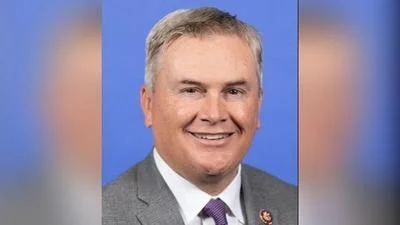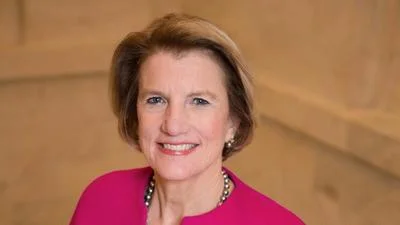Washington, D.C. -Yesterday, Rep. Carolyn B. Maloney, Chairwoman of the Committee on Oversight and Reform, held a hearing with Dr. Rahul Gupta, Director of the Office of National Drug Control Policy, to examine the federal government’s response to the overdose and addiction crisis, including the Biden-Harris Administration’s 2022 National Drug Control Strategy.
“The Biden-Harris Administration and Democrats in Congress have taken aggressive action to address both the supply and demand factors contributing to this crisis," said Chairwoman Maloney in her opening statement. “The overdose crisis affects every community represented by our Committee Members here today-both Democrats and Republicans. We owe it to our constituents to do everything we can to build on the Administration’s progress and work together to advance solutions to this public health crisis."
The hearing addressed the following key points:
Director Gupta illustrated the Biden-Harris Administration’s commitment to seizing illicit drugs at the southern border and disrupting drug trafficking across the United States.
* Director Gupta testified that, “The United States has a fundamental responsibility to protect its borders and this is precisely what the Biden Administration is doing." Dr. Gupta emphasized that, “since last year, we’ve apprehended 600,000 pounds of illicit drugs," including “11,000 pounds of fentanyl alone."
* Discussing the Administration’s strategy to control the flow of fentanyl into the United States, Director Gupta testified, “We plan to stop shipments of [synthetic opioid] precursors from China" and to make sure people protecting our border “have the technology and resources, as well as the infrastructure to stop the shipment" of illicit drugs.
* Chairwoman Maloney highlighted evidence that most illicit drugs interdicted at the border are being smuggled through legal ports of entry. Chairwoman Maloney explained, “as of 2019, 90% of heroin and 80% of fentanyl coming into this country arrived at a legal crossing point, and Trump’s border wall would not have stopped any of these opioids."
* The Committee also discussed two executive orders issued by President Biden imposing sanctions on transnational cartels and drug traffickers. Director Gupta testified: “This past December President Biden issued two Executive Orders that provide the Executive Branch enhanced architecture to better counter transnational criminal organizations in this dynamic environment, and to increase our ability to negatively impact foreign persons involved in the global illicit drug trade from a financial perspective."
Director Gupta underscored the need to expand access to treatment services for addiction and substance use disorder, and the steps the Biden-Harris Administration is taking to ensure that people in underserved communities are better able to access care-including through the use of telehealth services.
* Director Gupta announced that the Administration will extend use of telehealth services for substance use disorder treatment, explaining: “It is extremely important for President Biden, for this Administration, to ensure that telehealth services are available and are made available beyond the public health emergency. … It’s a time where we need to meet people where they are and telehealth-including phone consultations-allows us to do just that. And same goes for people in communities of color who already have a difficult time and delayed time accessing services."
* In response to a question from Rep. DeSaulnier, Director Gupta discussed the impact that providing treatment to incarcerated individuals has on those individuals and their communities, stating, “People become more productive, the death rates decline significantly-as we have seen in states like Rhode Island-when we treat people. Recidivism and costs go down as well."
* Under questioning by Rep. Wasserman Schultz, Director Gupta emphasized the importance of expanding Medicaid in ensuring people can access treatment for addiction substance use disorder: “We know that there is a direct link between increasing access to care and actually getting the care. It’s critical, that’s probably one of the most important pieces of the backbone that we’re going to need to solve this crisis and save the 107,000 lives and perhaps increasing number in the future. Access to care is a critical component, and obviously people who get it are able to then have at least one more issue that they don’t have to worry about while seeking care."
Following passage of the Restoring Hope for Mental Health and Well-Being Act of 2022 with overwhelming bipartisan support, Director Gupta and Committee Members highlighted the work that remains to prevent overdoses. That includes passing legislation like Chairwoman Maloney’s Comprehensive Addiction Resources Emergency (CARE) Act, to provide additional resources to communities and expand access to treatment needed to overcome addiction.
* In a response to a question from Chairwoman Maloney about the need to provide “sustained, comprehensive investments in treatment and care" to communities at the frontlines of the addiction crisis, as the CARE Act would do, Director Gupta responded: “It is one of the critical aspects of this particular crisis that we provide these types of services to folks when and where they need it. Not just for treatment but beyond treatment. To provide that support-comprehensive support. So it is important that we think about the ability to get people the help when they need it, where they need it, and efforts like this help us get there quicker and ultimately save lives."
* Asked by Rep. Raskin how the federal government can ensure people who need assistance are able to access it, Director Gupta explained: “It’s all about building community trust-bringing our communities together, including law enforcement, to build that trust. Congress can afford to provide the resources that communities need."
* Rep. Tlaib emphasized the need for naloxone to be widely available within communities: “Expanding access to opiate overdose reversal medication-as you know, they call it Narcan-would help achieve so much in saving tens of thousands of lives. … And we’ve seen in places like I think Massachusetts, where a Narcan distribution program reduced opioid doses by an estimated 11% without increasing opiate use."









